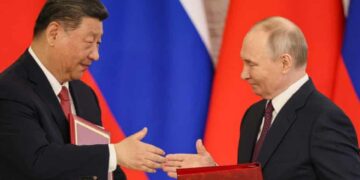By Ebi Kesiena
In a bid to boost economic growth and attract international talent, South Africa’s Minister of Home Affairs, Leon Schreiber, has unveiled significant visa reforms, including a Remote Work Visitor Visa and a Points-Based System for Work Visas.
These changes are designed to simplify the immigration process and encourage foreign investment, skilled labor, and tourism.
Announced on Wednesday, the reforms aim to remove bureaucratic hurdles that have historically made it difficult for foreigners to enter South Africa. Schreiber emphasized that streamlining the visa process is crucial for job creation and increasing foreign investment.
Key among the reforms is the Remote Work Visitor Visa, which allows high-earning foreign workers to live in South Africa while spending their income locally. This initiative is expected to stimulate the local economy by increasing consumer spending on goods, services, and taxes such as Value-Added Tax (VAT).
In addition, the introduction of a Points-Based System for Work Visas provides a clearer and more transparent framework for assessing visa applications, reducing the likelihood of corruption and inefficiencies in the process. Applicants for Critical Skills or General Work Visas will need to earn 100 points to qualify, with criteria based on skills, experience, and salary thresholds.
Schreiber noted the economic potential of these reforms, stating, “the gazetting of all required elements for the Remote Work Visitor Visa and the new Points-Based System for Work Visas is the most progressive and pro-jobs regulatory reform South Africa has seen in decades.”
Under the new system, General Work Visa applicants outside the Trusted Employer Scheme must meet a minimum gross annual income of R650,796, a threshold intended to protect lower-wage jobs while attracting highly skilled professionals. Studies suggest that each skilled worker added to the economy could generate up to seven new jobs.
These visa reforms are part of a broader effort by South Africa to reduce red tape, combat corruption in its immigration system, and create thousands of new jobs. By making the country more accessible to skilled professionals, the government hopes to foster talent and investment, ultimately supporting South Africa’s long-term economic development goals.



































